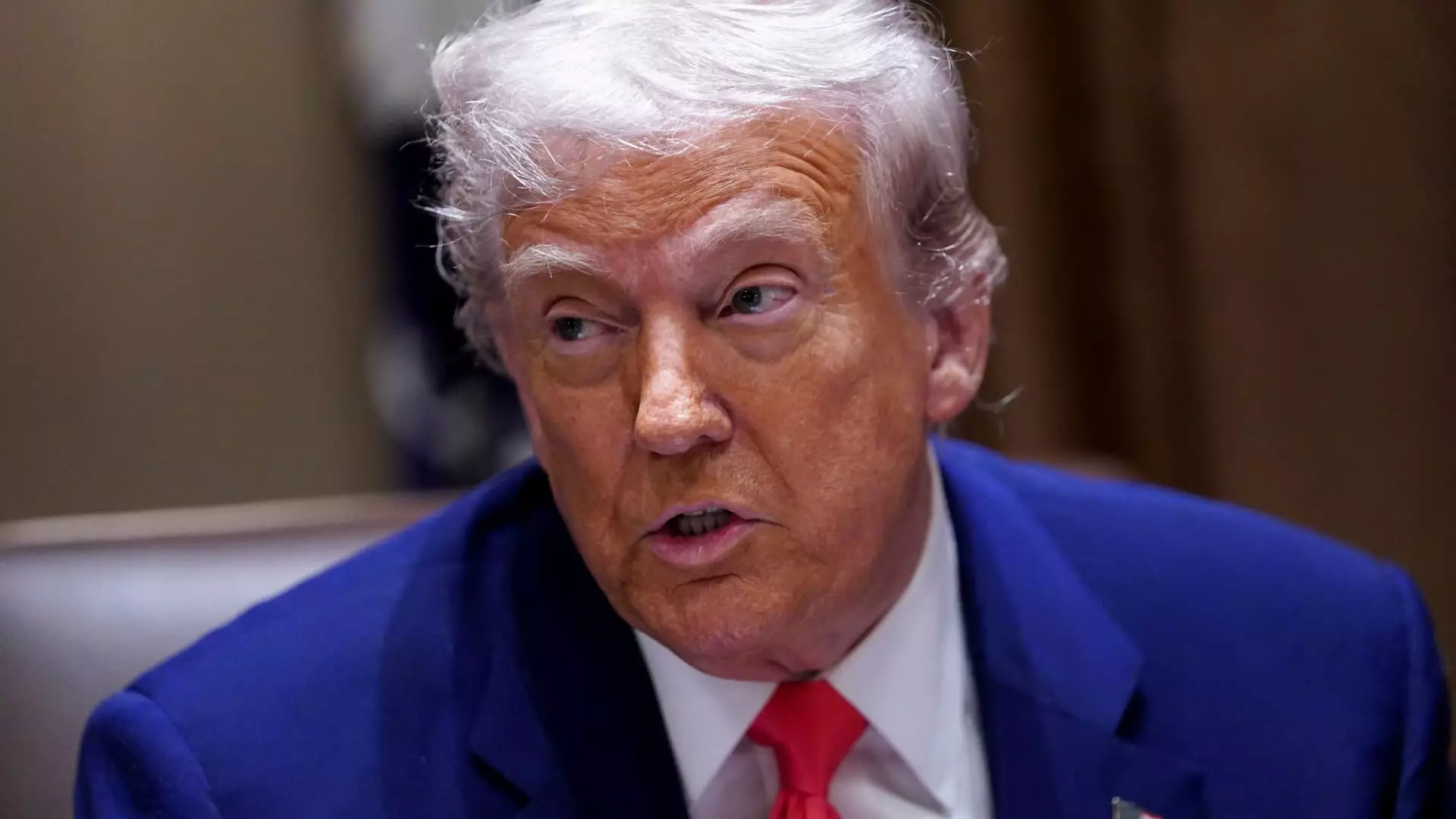The recent escalation in tariffs set forth by President Donald Trump—peaking at an unprecedented 145% on imports from China—heralds a new era of protectionism that many economists predict will irreparably damage U.S.-China trade relations. Erica York, an economist at the Tax Foundation, aptly noted that tariffs of this magnitude threaten to suffocate nearly all bilateral trade. Relying on tariffs as a tool to navigate economic issues may offer a temporary shield for American industries, but ultimately poses the risk of obfuscating the broader consequences of isolationism. This maneuver may cater to a populist agenda, yet it starkly contradicts the principles of free-market capitalism that have historically fueled America’s economic engine.
The Cost of Protectionism
As the market begins to feel the pinch of these tariffs, the impact on American consumers and businesses alike cannot be understated. A projected increase in federal tax revenue of $171.6 billion—a figure trumpeted by the administration—comes at an astronomical cost. Increases in consumer prices and the stifling of growth are direct consequences of such ill-advised fiscal maneuvering. As York points out, we are witnessing the steepest rise in tariffs since the 1940s, which translates into increased costs for basic goods and raw materials. This yields a double blow: while nominal revenue figures may be on the rise, the actual economic health of the nation is declining, leaving workers and families to bear the brunt of trade policies that operate counter to the realities of globalization.
The Myth of Retaliation
Moreover, one cannot ignore the retaliatory stance adopted by China, which recently escalated its own tariffs to 84%—a calculated move that should send alarm bells ringing throughout Washington. While some might view this as a mere tit-for-tat scenario, it underscores a dangerous game of economic chess in which both sides stand to lose. The sporadic pauses in tariffs, like the temporary 10% relief announced for other countries, only serve to highlight the uncertainty that shrouds the business environment. Trade wars are not won through bravado or ultimatums; they require deft negotiation and, importantly, a willingness to compromise.
Implications for American Workers
Every tariff hike reverberates through the economy, disproportionately affecting those who can least afford it—working-class Americans. The reliance on scribbled policy changes without a coherent strategy prioritizes the short-term gain over long-term stability. Industries that are critical for economic resilience, such as agriculture, are caught in the crossfire. The farmers who initially lent their support to Trump’s administration are now faced with dwindling export opportunities and falling prices, leading to an uncertain future.
The current trajectory of U.S. trade policy emphasizes a retreat from globalization rather than a constructive engagement with it. Amid the noise of political rhetoric, it is crucial for policymakers to reassess the implications of such extreme protectionist measures and focus on fostering an environment conducive to innovation, competitiveness, and mutual growth. Simply put, real economic strength does not derive from isolation, but rather from robust trade partnerships that benefit all parties involved.

